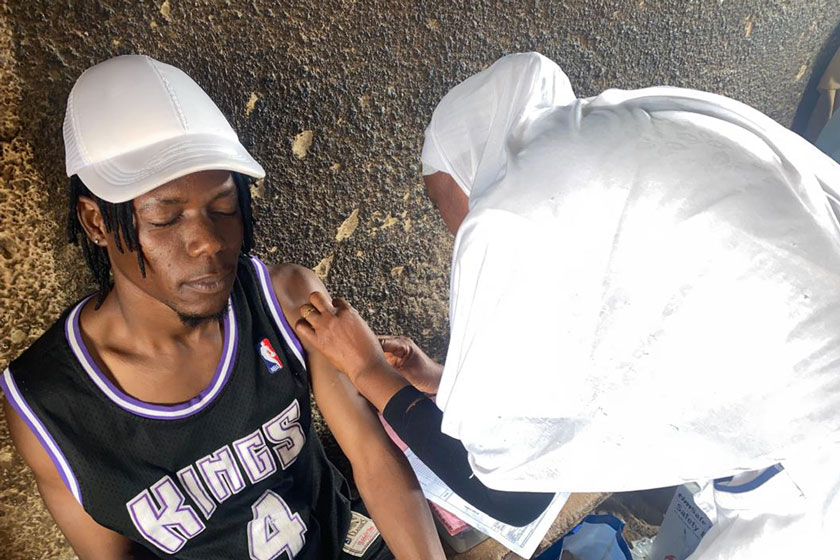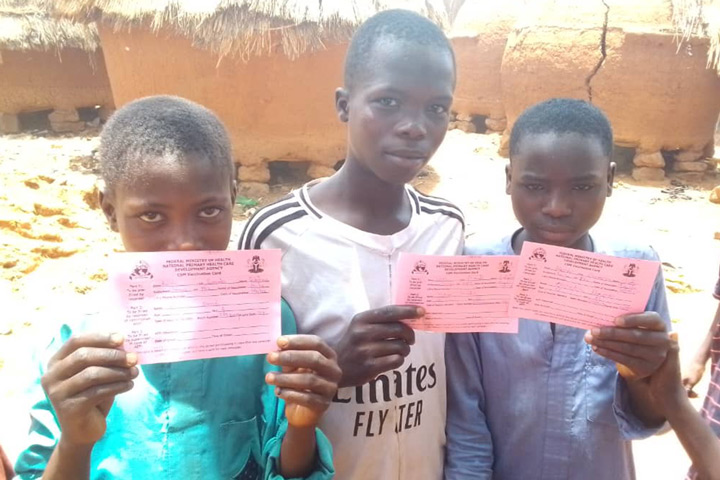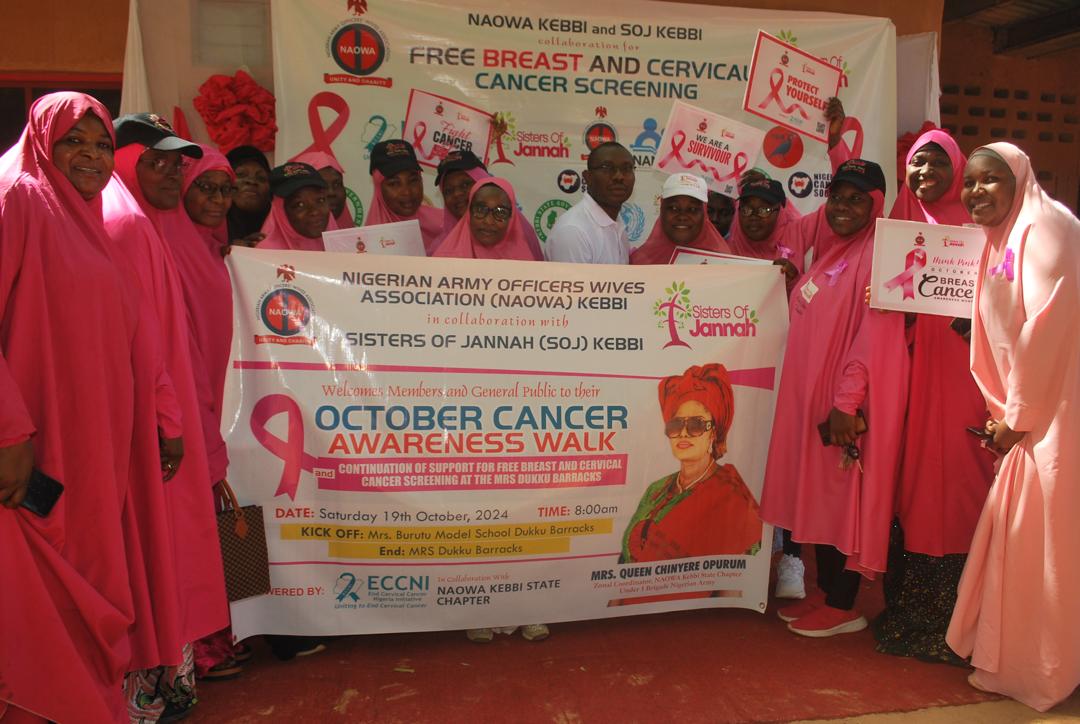Nigerian girls look forward to roll-out of cancer-blocking jab
As the first phase of the country’s HPV vaccine campaign gets set to launch, leaders promise no eligible child will be left out.
- 20 October 2023
- 6 min read
- by Eric Dumo
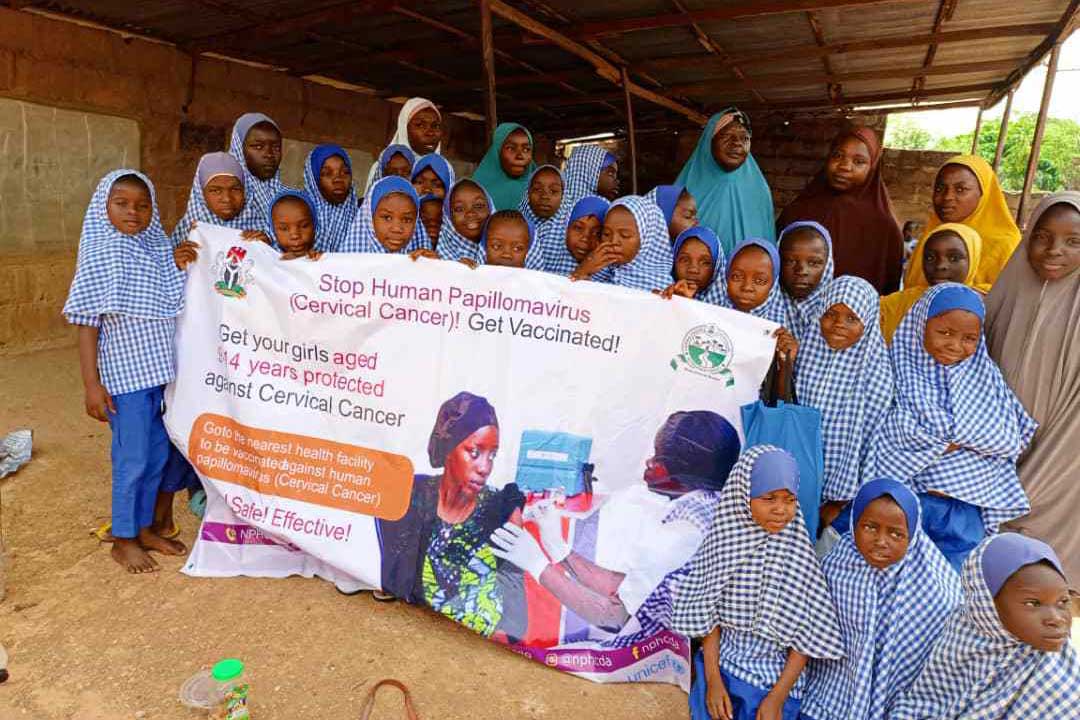
Back in March, a group of medical volunteers gave a talk at 13-year-old Desola Kareem's school in Ogijo, a densely-populated town in Ogun State, south-west Nigeria.
"For a long time, I lived with the fear of cervical cancer after the volunteers told us how the disease was killing young and older women," Kareem, one of the brightest pupils in her year, tells VaccinesWork. "They told us that many of us may not have children of our own when we grow up because of the disease. They told us that many girls won't live up to 30 or 40 years before the disease kills them. It was scary."
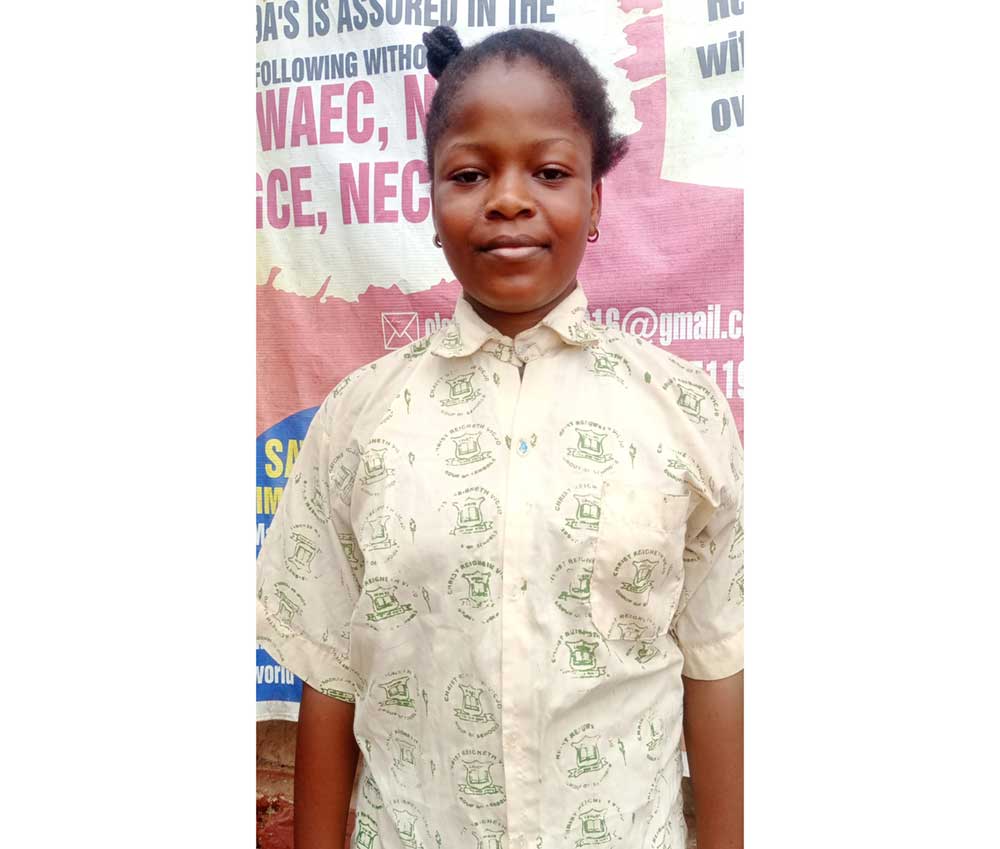
Credit: Eric DUmo
The statistics are legitimately alarming: an estimated 12,075 Nigerian women are diagnosed with cervical cancer each year, and with low screening rates resulting in late detections, nearly 8,000 of them die of the disease. It's a painful death.
“After they told us there was a vaccine to prevent the disease – and that we would all be given this medicine for free – I couldn’t contain my joy. I told my mother about it as soon as I got home, because she knew how scared I was [of cervical cancer] before then.”
– Desola Kareem, aged 13
But two weeks ago, a different set of health workers visited Kareem's school – and with better news. "After they told us there was now a vaccine to prevent the disease – and that we would all be given this medicine for free – I couldn't contain my joy," Kareem says. "I told my mother about it as soon as I got home, because she knew how scared I was before then."
A cancer shield for the people
On October 24, Nigeria will flag off the first stage of a massive human papillomavirus (HPV) vaccination drive, marking the introduction of the vaccine into the national routine immunisation schedule. Within the next three months, 16 of the country's 36 states will aim to immunise just over 7.1 million girls.
By January 2024, the phased campaign will sweep across the entire country. By the end of 2025, Nigeria aims to have vaccinated 16.6 million girls aged nine to 14 against the sexually transmitted virus, which is responsible for nearly all cases of cervical cancer.
Kareem's will be the first generation to be offered the vaccine free of charge. Until now, the jab has been available in Nigeria through private clinics for about $65 a dose – close to double the national minimum monthly wage. Making the vaccine free is expected to make all the difference to uptake levels.
"We have told Nigerians in our public service announcement, jingles on radio, TV, that the vaccines are free," emphasises Dr Bassey Okposen, Director of Disease Control and Immunization at the National Primary Health Care Development Agency. "We have given them our toll-free line. If you go to any facility and are charged any fee, call that line and we will have such persons arrested.
"All the health facilities across Nigeria will be opened, and the vaccine will be administered along with other vaccines free of charge," he adds.
Blackboards and airwaves: spreading the word
As the launch date looms, groups of volunteers and government employees across the country have been touring schools to educate girls about the cancer-blocking vaccine.
"In our school, some of us students have been staging dramas and pep talks on cervical cancer," reports 14-year-old Kelechi Anakuru, a secondary school pupil in Lagos. "The information we gather from our teachers and volunteers who visit for sensitisation is what we use to form these dramas and explain more about the disease to our friends."
Beyond schools, the country's healthcare system has also been working closely with community and religious leaders, civil society groups and other influential bodies in an effort to eliminate any barriers that could block girls in the target age bracket from accessing the jab.
Have you read?
The campaign has also reached major markets and motor parks across Nigeria with health officials visiting several days of the week to speak with petty traders and drivers to allow their girls take the vaccine. Radio jingles in various local languages, newspaper and TV adverts have further helped reinforce the message ahead of the roll-out of the HPV vaccine.
No girl left behind
That's important, because while girls in schools are projected to be relatively easy to reach with information and vaccines during the campaign, no fewer than 7.6 million school-age Nigerian girls are currently not in schools.
About 48% of that figure comes from the north-west and north-east of the country alone, according to UNICEF.
Ongoing insurgencies in those regions have pushed millions of girls into displaced people's camps, causing some onlookers to raise concerns about the inclusion of the country's hardest-to-reach in the roll-out.
Dr Okposen dismisses those concerns. Insisting that no eligible girl will be left out of the immunisation exercise, he observes that the ongoing awareness drumbeat – and the collaboration with opinion leaders at grassroots level – has already helped pique the right kind of interest in often missed-out quarters.
"The level of willingness among families and communities known to resist this type of initiative to allow their girls to take the HPV vaccine is quite remarkable," Okposen told VaccinesWork.
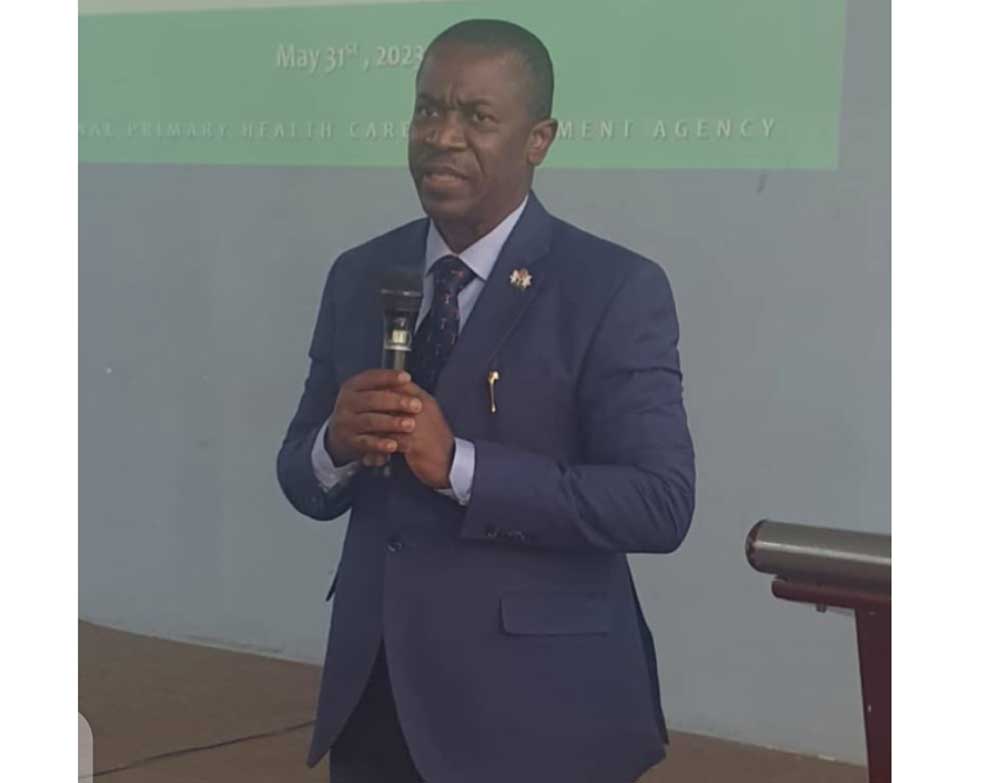
Credit: Eric Dumo
In fact, he projects a stock-out: "People know the importance of the vaccine as a result of the jingle on radio and television. From the feedback we have received, I am positive that the vaccine will not be enough, because a lot of girls will take it."
Building momentum
"No girl will be left behind, regardless of where they are in Nigeria," echoes Ladan Aliyu, a deputy director with the National Primary Health Care Development Agency, who has been working with local groups to ensure the success of the roll-out.
"The level of willingness among families and communities known to resist this type of initiative to allow their girls to take the HPV vaccine is quite remarkable."
– Dr Bassey Okposen, Director of Disease Control and Immunization at the National Primary Health Care Development Agency
"We have a plan in place to ensure girls in IDP [internally displaced person] camps and other hard-to-reach locations in any part of the country are successfully captured," he continues.
To drum up enthusiasm for phase 1 of the campaign, the health system has been enlisting the services of high-profile figures. "We are having engagements with the wives of the governors of the 16 states under the pilot phase. They are going to give endorsement speeches for the vaccine rollout, which will be aired in the media."
"There are also compound meetings and house-to-house mobilisation at the ward level going on already for the HPV vaccine introduction," Aliyu adds.
Desola Kareem, for her part, needs no more mobilising. "I look forward to taking the vaccine that will protect my future," she says simply.

